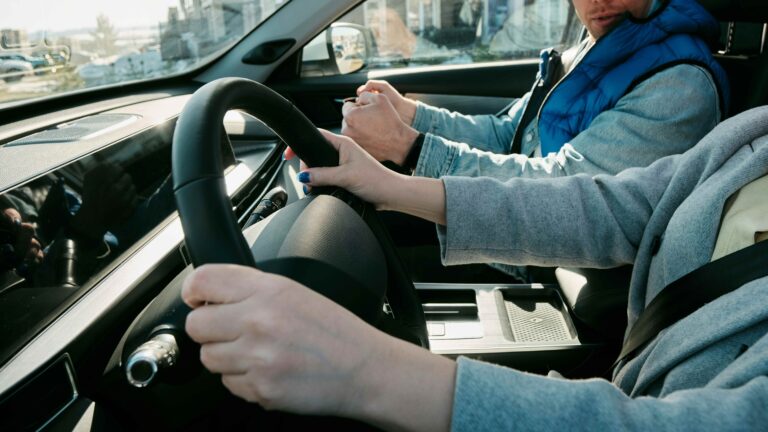First car experience is exciting but daunting as well at the same time. You have been taught about all the norms when you have sat behind a wheel for first time in training lessons, yet the moment you step out from behind their vehicle and begin on your own the whole thing would seem to blur out. Here is everything you need to know about UK driving laws to ensure you are as safe as possible when on the road.
Is a License Required to Drive as a Learner?
Yes, you do-but only a provisional license. You’re not permitted to start learning until you’ve applied for and got a provisional driving license. It lets you drive in the UK under supervision. Without it, you cannot get lessons or attempt to drive with an experienced licence holder.
Also, note that your license can be taken away if the vehicle does not have a valid MOT and road tax. Before getting into a car, you can run an alternative HPI check to reveal this information. You can check any car free of charge, and for a small fee, you can upgrade to access the full car history.
You can apply for a provisional license online by visiting the government website or by filling up a D1 form from your local post office. The application currently costs £34. You will need to provide the following:
- Valid passport or similar identification
- Addresses over the last three years
- National Insurance Number
Who Can Company You While Driving?
Once you are given a provisional license, you can be licensed to drive provided that you have someone to take you along as his passenger. The guide can be a certified driving instructor or a driver of 21 years or more with a full license for three years or more.
Your supervisor must, at all times, be in a fit state to drive so that they can seize the vehicle if required. Legal requirements of supervisors include the following:
- Being sober and free from substances that impair driving
- Wearing corrective lenses if needed
- Being capable of driving physically, and not having restrictive injuries like arm or leg casts
- Avoiding taking drugs that promote drowsiness
- Not making use of phones while supervising
Failure to observe these requirements may lead to a fine of up to £1,000 with six penalty points on your provisional license.
You can carry additional passengers, and this is allowable provided your supervisor sits in the front seat while the car doesn’t exceed the legal capacity of the vehicle.
Minimum Age Requirements
You are allowed to start learning to drive a car from 17 years and above. However, for PIP’s mobility component, you can start learning and might even take your test at 16.
For younger learners, you can ride a moped once you have completed CBT for 16 years.
Eyesight Requirements
To get a provisional license you must be able to read a standard licence plate 20 meters distant. You ought to have, and therefore you must wear spectacles or lenses if those are necessary to do so.
While you don’t need to report short-sightedness, long-sightedness, colour blindness, or corrective eye surgery to the DVLA, any serious eyesight issues should be disclosed to avoid legal consequences. During your practical test, failing the eyesight check results in an immediate fail, and your license may be revoked.
Whose Car Can You Drive?
You can drive any car provided you’re covered and have consent from the owner. It does not whether the vehicle belongs to you or the person else; however, first of all, ensure the vehicle is roadworthy and has cover then fix L plates, and D plates if in Wales to the front and back sides.
Where and When Can You Drive?
Driving at Night: You’re allowed to drive at night with proper supervision and insurance. However, night driving poses additional risks, such as reduced visibility and difficulty judging distances. Some policies don’t allow night driving, so check that first.
Motorway driving: From 2018, it will be legal for learner drivers to drive on a motorway if they are being supervised by an approved driving instructor in a dual-controlled car. All motorway driving is entirely optional and won’t be covered in any test.
Insurance Requirements
If driving in your car, you require learner driver insurance. When driving in another person’s car, you are a named driver on their policy. Remember, an accident may impact the bonus of the car owner unless you have provisional insurance that safeguards the bonus.
Driving without insurance is a serious offence. It means you will incur fines, penalty points, and even disqualification. In the worst-case scenario, your car might be confiscated.
Drive Smart and Stay Safe
Understanding the legal requirements for learner drivers helps one build confidence and remain safe. If followed, the guidelines will surely provide an added merit to pass the driving test confidently.



